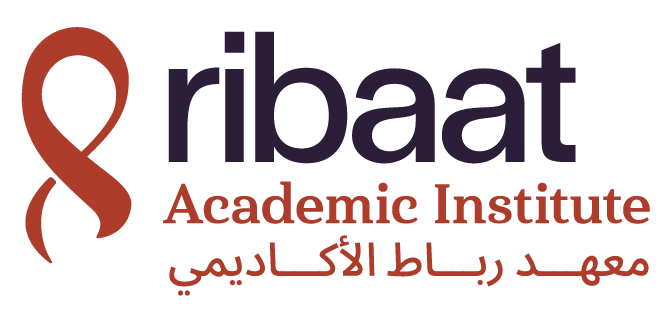Ribaat Scholar Certification
The Ribaat Scholar Certification equips women with the knowledge, skills, and spiritual grounding to join the historic legacy of female Islamic scholarship. This esteemed certification in the sacred studies prepares graduates to serve as resident scholars, mentors, and teacher-leaders in their communities. Certified scholars are qualified to teach in Rabata programs and at Islamic schools, masjids, and centers that recognize and accept this credential.
- A strong foundation in Islamic studies
- Personal spiritual growth and development
- Dynamic student-teacher interaction
- Modern educational tools and expertise
The Ribaat Scholar Certification is authorized by the Ribaat Academic Council under the leadership of Dr. Tamara Gray. To earn this distinction, students must successfully complete all required courses with a passing grade.
Required Courses
SIR 101 | Companions of the Prophet ﷺ | Part 1
|
SIR 102 | Companions of the Prophet ﷺ | Part 2 |
PUR 101 | Training the Tongue, Purifying the Heart |
AQD 101 | Foundations, Flounderings, & Faith |
TAF 101 | Reflections from the Quran: Selected Surahs |
COM 102 | Public Speaking & Community Outreach |
EDU 101 | Teaching Skills and Methodology |
CRT 102 | Ribaat Immersion Retreat |
ARL 111 | Arabic Novice Beginner |
ARL 121 | Arabic Novice Middle |
ARL 131 | Arabic Novice High |
TAJ 101 | Quran Fluency | Part 1 |
TAJ 102 | Quran Fluency | Part 2 |
| Level 1 Elective |
SIR 201 | Lessons from the Life of the Prophet ﷺ | Part 1 |
SIR 202 | Lessons from the Life of the Prophet ﷺ | Part 2 |
AQD 201 | Introduction to Islamic ʿAqīda | Part 1 |
AQD 202 | Introduction to Islamic ʿAqīda | Part 2 |
TAF 201 | Tafsir Juz’ Amma |
TAF 202 | Tadabbur: Building a Personal Relationship with the Quran |
FQH 201 | Fiqh al-ʿIbādāt – al-Madh-hab al-Shāfiʿī | Part 1 |
FQH 202 | Fiqh al-ʿIbādāt – al-Madh-hab al-Shāfiʿī | Part 2 |
HAD 201 | The Forty Hadith of Imām al-Nawawī | Part 1 |
HAD 202 | The Forty Hadith of Imām al-Nawawī | Part 2 |
SSC 203 | Exploring the Global Muslim World |
HIS 201 | Mujaddidīn: Crises and Cures of Muslim History |
HIS 202 | The Guided Khalifas in Times of Uncertainty |
EDU 201 | Mentorship Matters: How to Guide, Support, and Help Others |
CRT 201 | Advanced Seminar |
ARL 211 | Arabic Intermediate Beginner 1 |
ARL 212 | Arabic Intermediate Beginner 2 |
ARL 213 | Arabic Intermediate Beginner 3 |
ARL 221 | Arabic Intermediate Middle 1 |
ARL 222 | Arabic Intermediate Middle 2 |
ARL 223 | Arabic Intermediate Middle 3 |
ARL 231 | Arabic Intermediate High 1 |
ARL 232 | Arabic Intermediate High 2 |
ARL 233 | Arabic Intermediate High 3 |
TAJ 201 | Tajwid Part 1: Letters & Phonetics |
TAJ 202 | Tajwid Part 2: Rules & Rhythm of Recitation |
| Level 2 Elective |
CRT 301 | Orientation: Ribaat Religious Leader Certification |
SIR 301 | Sīra: An Academic Study of the Life of the Prophet ﷺ | Part 1 |
SIR 302 | Sīra: An Academic Study of the Life of the Prophet ﷺ | Part 2 |
AQD 301 | ʿAqīda: An In-Depth Study of Islamic Theology | Part 1 |
AQD 302 | ʿAqīda: An In-Depth Study of Islamic Theology | Part 2 |
HAD 301 | Uṣūl al-Hadith: A Study of the Origins of the Sayings of the Prophet ﷺ |
TAF 301 | ʿUlūm al-Quran: The Sciences of the Quran |
TAF 302 | Tafsir of Selected Suras |
FQH 301 | Uṣūl al-Fiqh: Foundations of Fiqh |
FQH 302 | Contemporary Fiqh |
HIS 301 | Major Muslim Scholars: Women |
COM 301 | Academic Writing: Blogs, Articles & Books |
ARL 311 | Arabic Advanced Beginner 1 |
ARL 312 | Arabic Advanced Beginner 2 |
| ARL 313 | Arabic Advanced Beginner 3 |
TAJ 301 | Khitmah Project |
| Level 3 Elective |
SIR 401 | Sīra: An Academic Study of the Life of the Prophet ﷺ | Part 3 |
SIR 402 | Sīra: An Academic Study of the Life of the Prophet ﷺ | Part 4 |
TAF 401 | Tafsīr: Formal Explanation of the Meanings of the Quran | Part 1 |
TAF 402 | Tafsīr: Formal Explanation of the Meanings of the Quran | Part 2 |
TAF 403 | Tafsīr: Formal Explanation of the Meanings of the Quran | Part 3 |
TAF 404 | Tafsīr: Formal Explanation of the Meanings of the Quran | Part 4 |
FQH 402 | Comparative Fiqh: The Four Sunni Schools |
HAD 401 | Riyāḍ al-Ṣaliḥīn | Part 1 |
HAD 402 | Riyāḍ al-Ṣaliḥīn | Part 2 |
HIS 401 | History of the Muslim World | Part 1 |
HIS 402 | History of the Muslim World | Part 2 |
HIS 403 | History of the Muslim World | Part 3 |
HIS 404 | History of the Muslim World | Part 4 |
PUR 401 | Tazkiya: Islamic Principles of the Betterment of the Self | Part 1 |
PUR 402 | Tazkiya: Islamic Principles of the Betterment of the Self | Part 2 |
PUR 403 | Tazkiya: Islamic Principles of the Betterment of the Self | Part 3 |
SSC 401 | Islamic Civilization and Culture | Part 1 |
SSC 402 | Islamic Civilization and Culture | Part 2 |
FQH 401 | Fiqh al-Muʿāmalāt: The Jurisprudence of Transactions & Contracts |
EDU 401 | Counseling: Marriage & the Family |
TAJ 402 | The Crowning Venture: Quran Memorization – Juz’ ‘Amma |
COM 401 | Thesis |
CRT 402 | Oral Assessment: Thesis Defense |
| Level 4 Elective |
FAQs - Frequently Asked Questions
Step 1: Before committing to the full certification program, we advise new students to start with one or two courses as a trial.
Step 2: Once you have completed at least 1 course and are committed to starting a certification program with Ribaat, email advising@rabata.org to meet with an advisor.
Step 3: Registration for the Ribaat Teacher Certification program is open year round: Visit register.rabata.org to register in the orientation course: CRT 101.
Applications to join the next Ribaat Scholar Certification cohort are scheduled to open January 2026.
Step 4: Start your courses! Students can enroll in the required courses at their own pace, starting from Level 1, and may choose which order to enroll in them. Level 1 should be completed before moving on to Level 2 and so on. As students complete courses, their progress will be tracked and they will be contacted with more certification details.
Step 5: Attend the termly certification cohort class which is held once in each of the Fall & Spring terms. Keep an eye on your inbox for the announcement on the class date & time.
Step 6: Contact your advisor each term to ensure you are on the right track and receive advice on course load and sequence.
Yes. The Ribaat curriculum has been designed to be flexible to student needs and timelines. You need not finish the certifications within a set time limit.
Ribaat students are from all walks of life and reside in over 90 countries.
Yes. Credits earned for the Teacher Certification will also be counted towards the Scholar certification. Students can complete one certification program and then start the other, or enroll in both simultaneously.
It is not required to take the courses in order. However, to achieve the utmost benefit, we suggest completing the levels in order, as Level 1 and 2 courses will provide a solid foundation upon which to build subsequent knowledge in the higher levels. Prerequisites are also listed for each course, and it is required to complete all prerequisites before advancing.
Yes, courses you have passed previously will be counted.
From previous student experience, it is not advisable to enroll in more than three courses at once unless you intend to study full-time. Full-time students should not enroll in more than 6 courses at once.
First-time students are advised to enroll in one or two courses, until they can adequately assess how many they will be able to take on at once. Keep in mind that in terms of workload, each Arabic or Tajwid course is equivalent to 2 Islamic Studies courses.
Yes, students should meet with an adviser to set a plan of study. To arrange an appoint, email advising@rabata.org.
You may complete an Arabic placement test to ascertain that you have reached the required level of Arabic to earn the certification. However, we highly suggest you ensure the program you choose is geared towards liturgical Arabic and will help you access sacred texts in formal Arabic in addition to speaking and listening skills.
To access the placement test, visit register.rabata.org.
Yes, scholarships are available for students who cannot cover the registration fees. A student may apply for up to two scholarships per term. Course completion of previous courses will be taken into consideration upon application. To learn more about financial aid, go to Enrollment >> Financial Aid.
Yes. All students starting in the Tajwid Program must complete an assessment with one of our tajwid instructors. Based on the result, you will receive a recommendation on the best course for your level inshallah.
To arrange an appointment, email tajwid.assess@rabata.org. The Tajwid team will be in touch with you as soon as possible inshallah.
Ribaat focuses on Shafi’i fiqh and it is a requirement to complete the Ribaat certifications. You may also, of course, study fiqh on other madhhabs and inshallah this will only increase your knowledge and ability to help others.
Accreditation options are currently under review.

